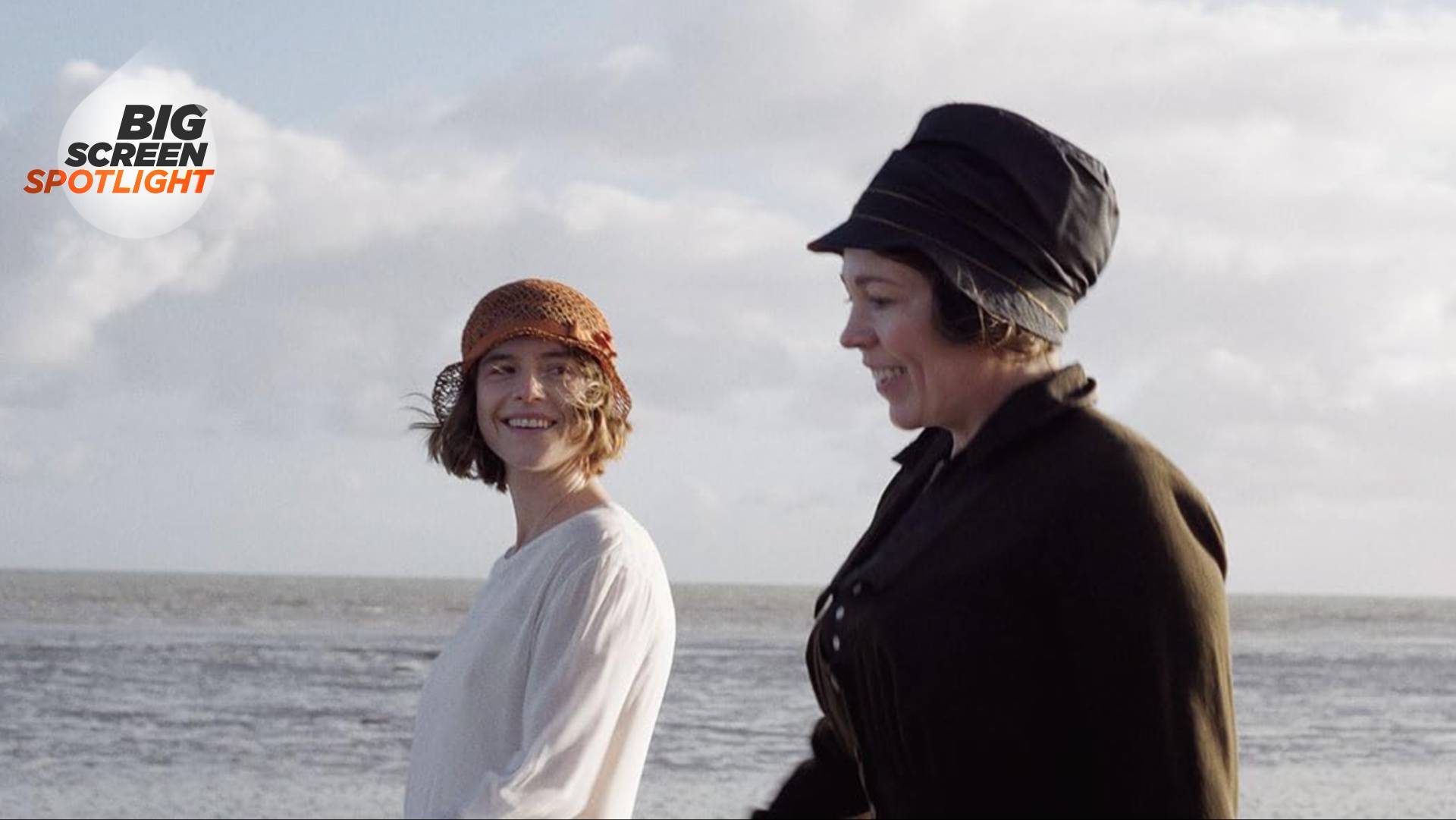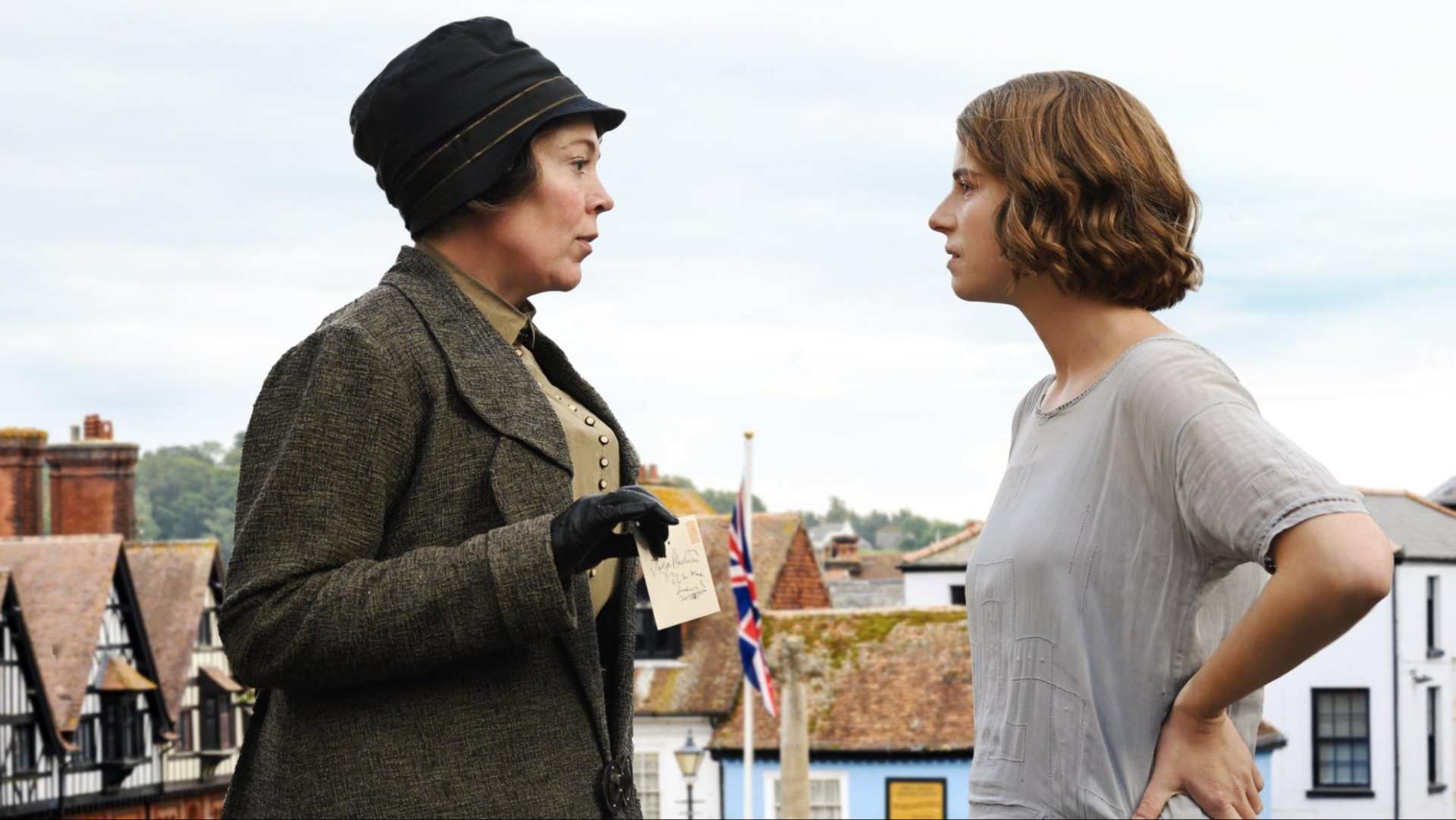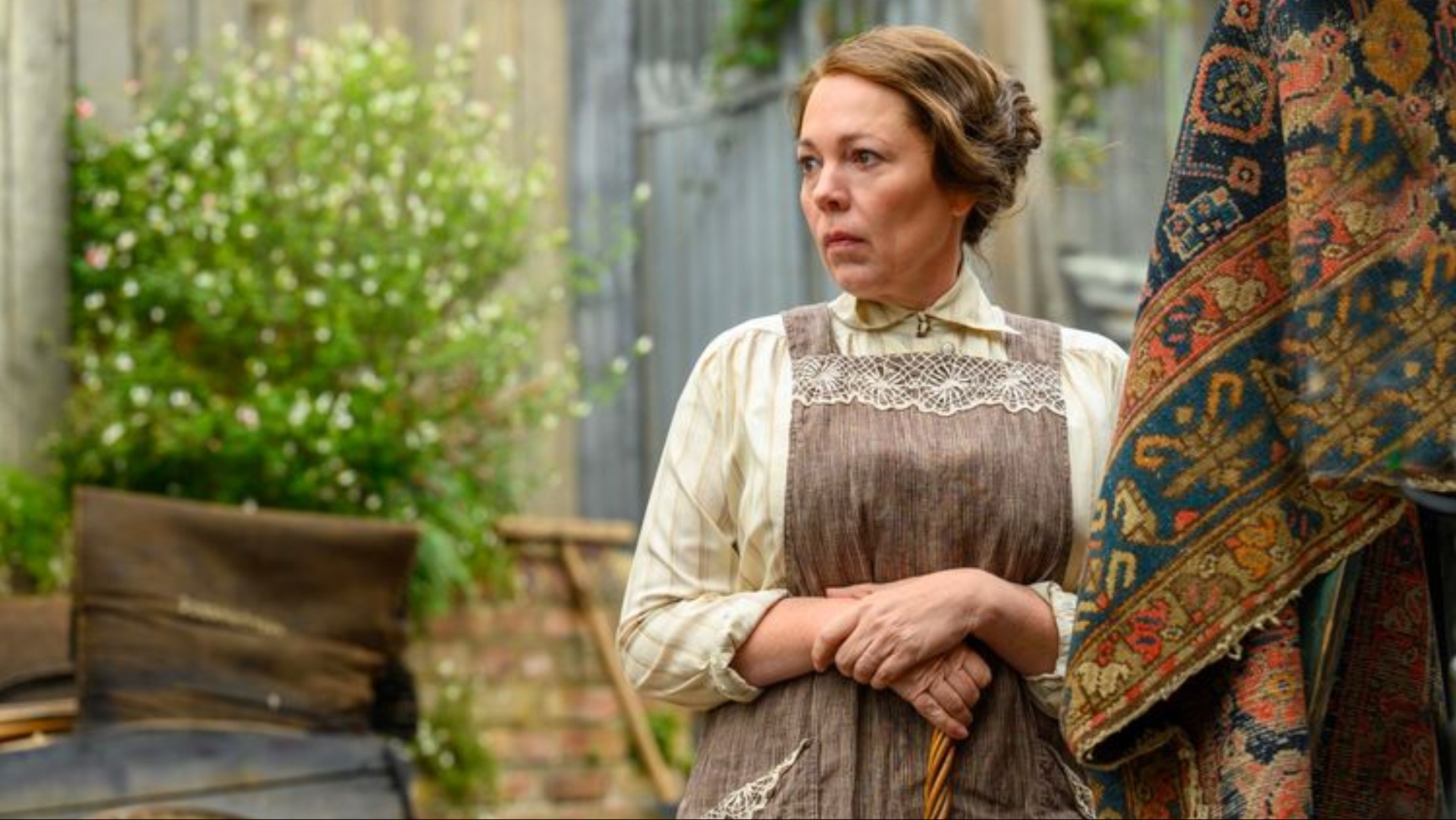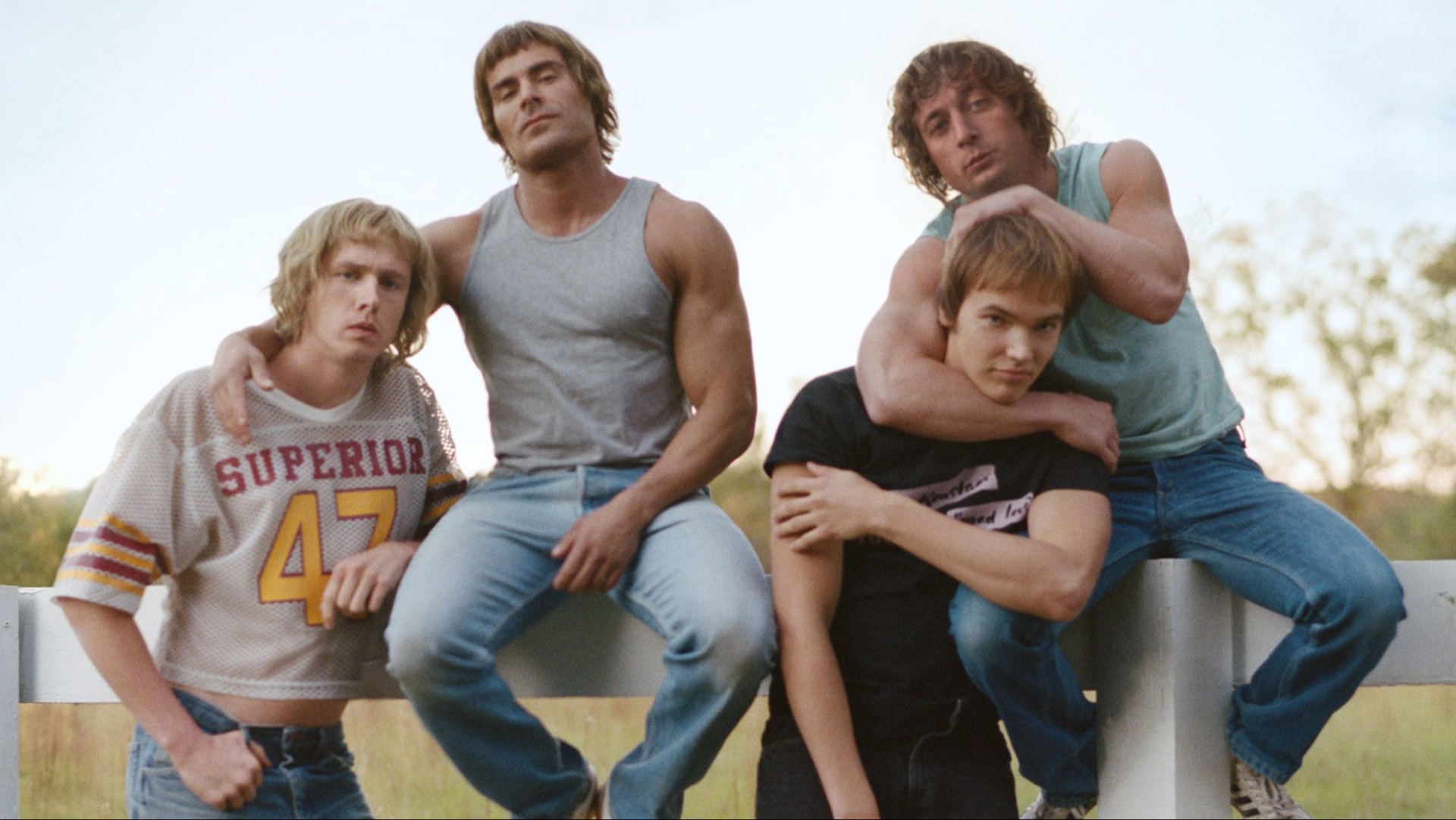Olivia Colman's new foul-mouthed comedy has an unexpectedly nuanced darker side
Big Screen Spotlight | Olivia Colman and Jessie Buckley unravel shame, fear, and the power of swearing in Wicked Little Letters

Warning: mild spoilers for Wicked Little Letters ahead!
A small town on the south coast of England serves as the setting for new period comedy Wicked Little Letters. The people of Littlehampton, West Sussex, might have just lived through the horrors of the First World War when the film opens, but they're still rather scandalized by the word 'fuck', and when a torrent of obscene letters start piling at the door of godfearing Edith Swan (Olivia Colman), a rapidly escalating scandal ensues. The local bumbling police force gets involved, and their number one suspect is Edith's foul-mouthed neighbor, Rose (Jessie Buckley).
Rose is an outlier in Littlehampton. She's raising a young daughter without a husband, she has an Irish accent, she loves sex and swearing – and she's not so fond of Edith. We learn that the pair used to be friends, forging a mismatched but genuine bond when Rose first moved to England, but a particularly explosive disagreement about Edith's desire to make her a "proper" lady promptly extinguished that relationship. A friendship breakup seems as good a reason as any to start an anonymous trail of vulgar insults, right? Well, not quite.
(Bad) language is liberation

It soon becomes apparent – and this isn't a huge spoiler – that Edith is sending the letters to herself, and the crux of the movie shifts from unmasking the writer's identity to proving that the victim is actually the culprit. Although Gladys Moss (Anjana Vasan), the town's only woman police officer, is more concerned with catching Edith in the act than unraveling her motives, the film moves past its comedy roots into much more interesting territory when it does just that.
Shining a light on the under-the-radar theatrical releases that you need to know about, with a new article every Friday
Edith is the antithesis of Rose. She's single, childless, and never moved out of the family home, living her life at the whims of her father (Timothy Spall) and his fits of rage. He belittles and patronizes her like clockwork, treating her as little more than a maidservant. The Bible provides some reprieve for Edith, but she finds more comfort in the self-righteousness this affords her than in the word of the Lord.
Ground down by the patriarchal force of her father and a life of missed opportunities, Edith is suffocated by shame and self-hatred. Lacking any means of escapism in a town where everyone knows everyone, she finds that swearing sets her free – language is liberation for her, and every 'fuck' and 'shit' feels emancipatory.
As well as shame, she's jealous of Rose and the freedom afforded by her lack of inhibitions. Rose has a lover and a daughter, but she also lives without fear of judgment. She uses the bathroom without locking the door, gets exuberantly drunk in the pub, and is undeterred by the thin walls of her terraced house when she loudly has sex. Straightlaced Edith can only dream of such forthrightness, so she channels that into her letters.
Bringing all the latest movie news, features, and reviews to your inbox
Pandora's box

Her self-inflicted hate mail serves a dual purpose: the letters are an outlet for her internalized rage, but they also push her into the spotlight as a sympathetic victim. Edith becomes a local celebrity, with the case spreading far beyond Littlehampton and getting coverage in the national press and even attention from lawmakers in Parliament.
In Edith, director Thea Sharrock and screenwriter Jonny Sweet have created a much more nuanced character than the film would initially have you believe. Edith's shame is crippling, internalized to the point where the cracks start to show and her whole pious facade of superiority is on the verge of caving in entirely.
To put it bluntly, Edith is truly unlikeable, redeemed only by Colman's performance and charm, but that only makes Wicked Little Letters all the more interesting. Her character also functions as effective social commentary, painting a picture of both early 20th Century misogyny and the timeless danger of repression and alienation. On the surface, Wicked Little Letters is a frothy, eccentric comedy and, as is the case with many British movies with a period setting, it runs the risk of entering twee territory. When the film begins to lift the lid on Edith's personality, though, we get something much darker, more nuanced, and pleasantly unexpected.
Wicked Little Letters is out now in UK cinemas and will be released in US theaters on April 5. For more on what else you should be watching at the cinema, be sure to check out the rest of our Big Screen Spotlight series.
I’m an Entertainment Writer here at GamesRadar+, covering everything film and TV-related across the Total Film and SFX sections. I help bring you all the latest news and also the occasional feature too. I’ve previously written for publications like HuffPost and i-D after getting my NCTJ Diploma in Multimedia Journalism.



